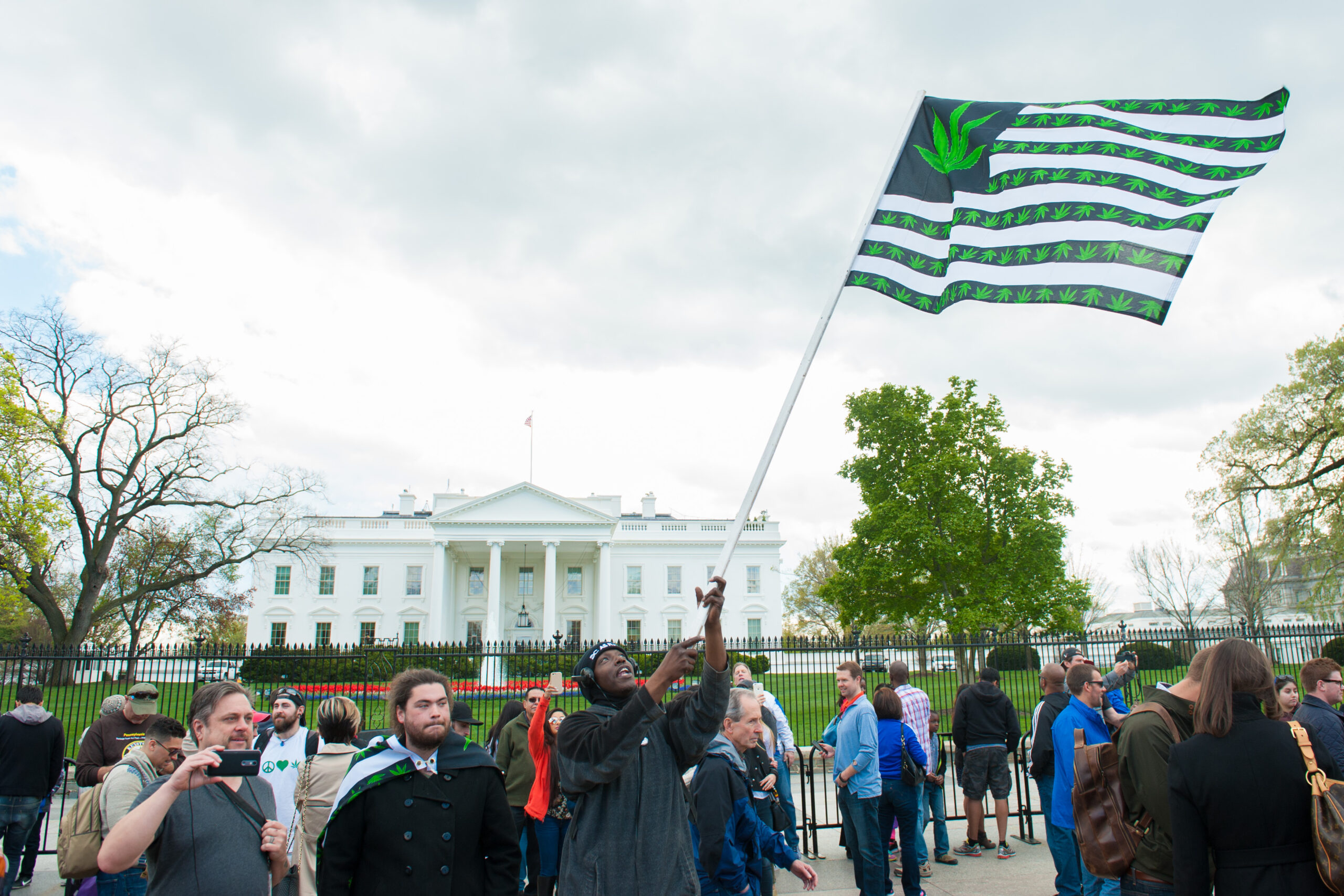Connect with us
Published
2 months agoon

The potential rescheduling of cannabis on the Controlled Substances Act (CSA) has already felt like quite the saga.
In October 2022, President Joe Biden requested that the secretary of the Department of Health and Human Services (HHS) conduct a review of the current scheduling of cannabis under federal law. It’s currently classified as a Schedule I drug, deeming that it has “no currently accepted medical use and a high potential for abuse.”
Then, in August 2023, the HHS sent its findings on cannabis to the Drug Enforcement Administration (DEA) to make the final call on rescheduling—from Schedule I to Schedule III.
Biden nodded to the ongoing decision in his recent State of the Union address, and a recent survey not only found broad support for the move but that Biden could see a boost in favorability should the DEA actually move to reclassify cannabis.
And, according to a new analysis from Bloomberg Intelligence, it’s increasingly likely that a decision will be made well before Election Day in November. In fact, the analysis claims that there is an 80% chance that it will happen in the next few months.
The estimate comes after Biden’s mention of cannabis reform in the State of the Union address, the first time in history a president has included the topic in the annual speech. Bloomberg suggests that nodding to the topic in his address increased the likelihood of a timely decision, within the next few months, to the 80% figure.
Many industry professionals are becoming increasingly hopeful that cannabis will be rescheduled, namely in that it will allow cannabis businesses licensed by the state to take federal tax deductions—which is currently not allowed under current scheduling. While moving cannabis to Schedule III will maintain its status as a controlled substance and will not federally legalize cannabis, it would also eliminate some research barriers around the plant.
According to Bloomberg’s analysis, there has been a “dramatic shift in focus” since the possibility of rescheduling first came up last August. Specifically, those talks centering “legalization” which were much more prevalent last year have been largely replaced with those discussions around “rescheduling.”
Though, it’s still not fully clear what final decision the DEA will make.
A separate Wall Street Journal report shares that some DEA officials are skeptical about the HHS recommendation to reschedule cannabis. According to the report, a number of officials have questioned whether the HHS findings are accurate. The officials raised concerns over modern cannabis strains, specifically because they are often more potent than those strains from decades past.
Others claimed that the therapeutic benefits of cannabis remain unproven, that cannabis does have a high potential for abuse and that more research is needed to review the long-term health benefits and effects of cannabis use.
The report didn’t name specific sources but claimed they were “familiar with the matter.”
The DEA’s final decision will be subject to a public comment period and could very well pave the way toward eventual legalization. However, some advocates and lawmakers alike have argued that this move isn’t enough and instead are pushing to deschedule cannabis entirely, removing it from the CSA.
In January, a group of 12 Senate Democrats pushed for the DEA to deschedule cannabis.
“While rescheduling to Schedule III would mark a significant step forward, it would not resolve the worst harms of the current system,” the letter reads. “Thus, the DEA should deschedule marijuana altogether. Marijuana’s placement in the CSA has had a devastating impact on our communities and is increasingly out of step with state law and public opinion.”
Though, given the uncertainty around rescheduling cannabis and the Biden administration’s lack of acknowledgement to this alternative option, it’s unlikely that the DEA will move to remove cannabis from the CSA—which, unlike rescheduling, would effectively legalize cannabis on a federal level.


Study Reveals State Cannabis Legalization Lowers Immigrant Deportation


DEA Challenges Bid To Use Psilocybin Under ‘Right To Try’ Legislation


Vegans Rejoice as Farmers Switch from Chickens to Hemp


Louisiana Legislative Committee Unanimously Passes Adult-Use Cannabis Framework Bill


Louisiana House Bill to Regulate Hemp Products Advances Along With Senate Bill to Ban


Cresco Labs Workers Reportedly De-Unionize
